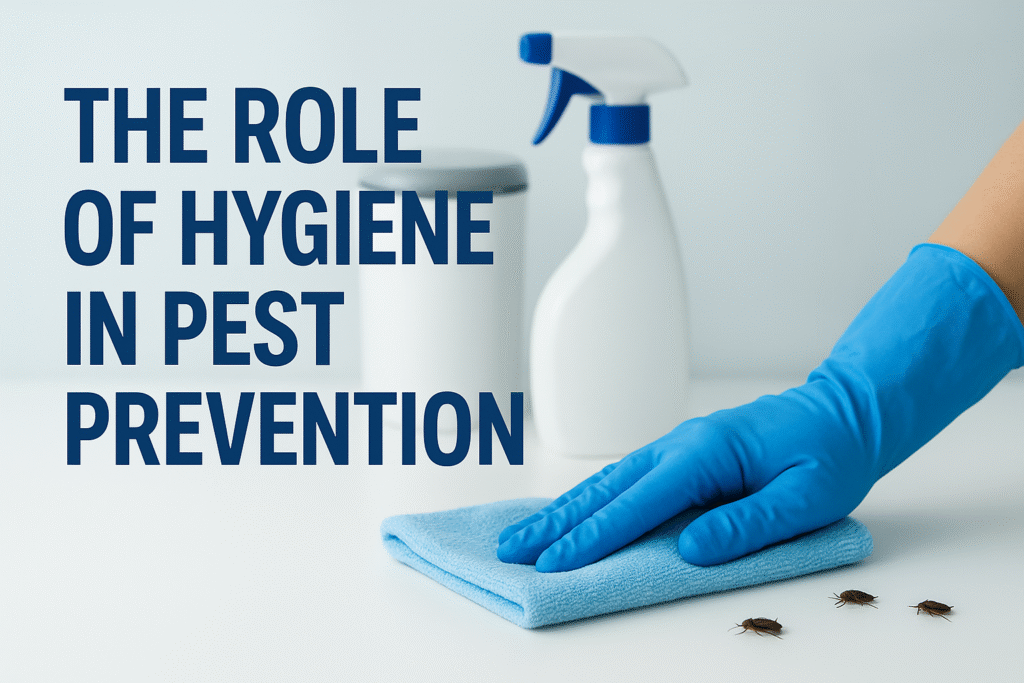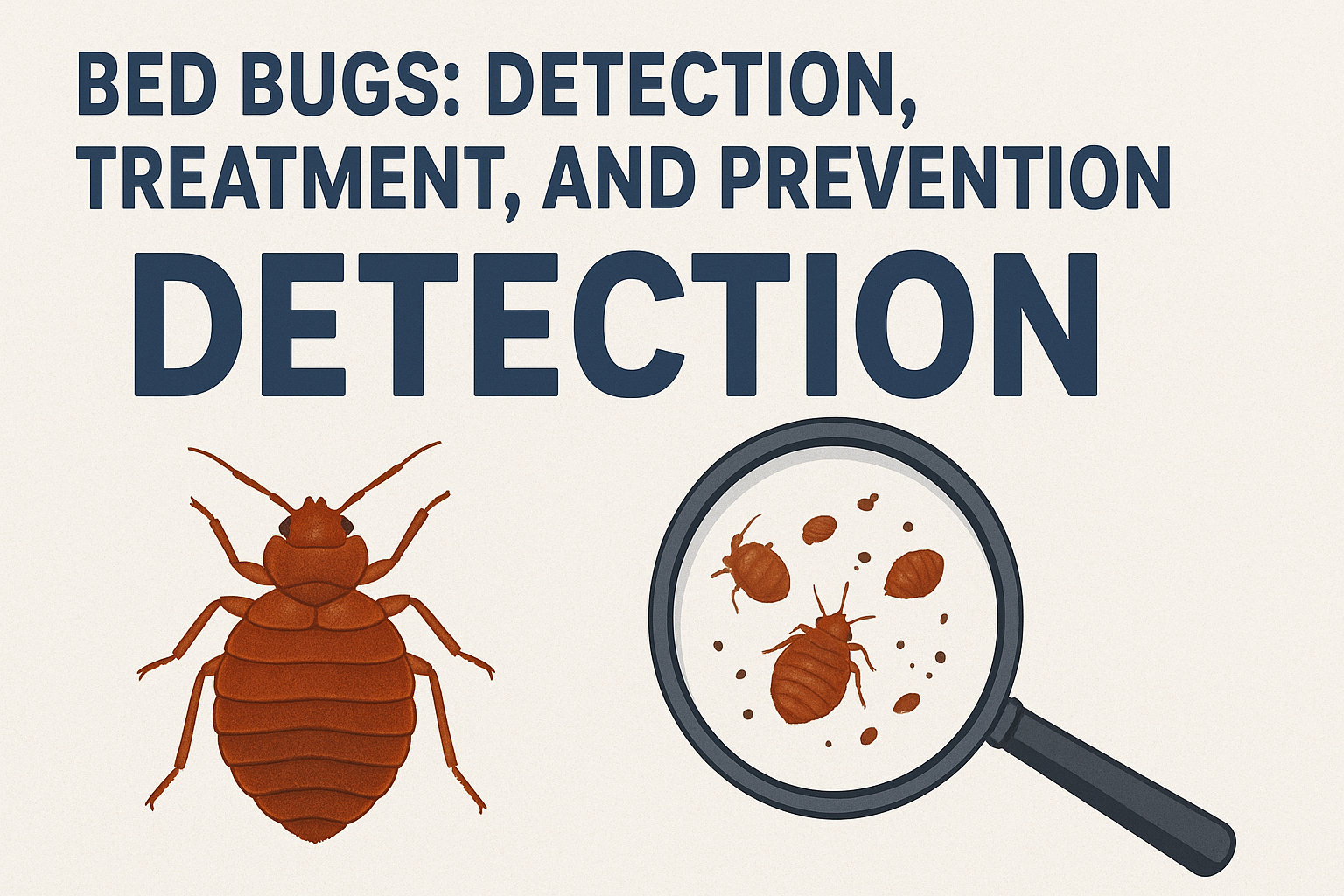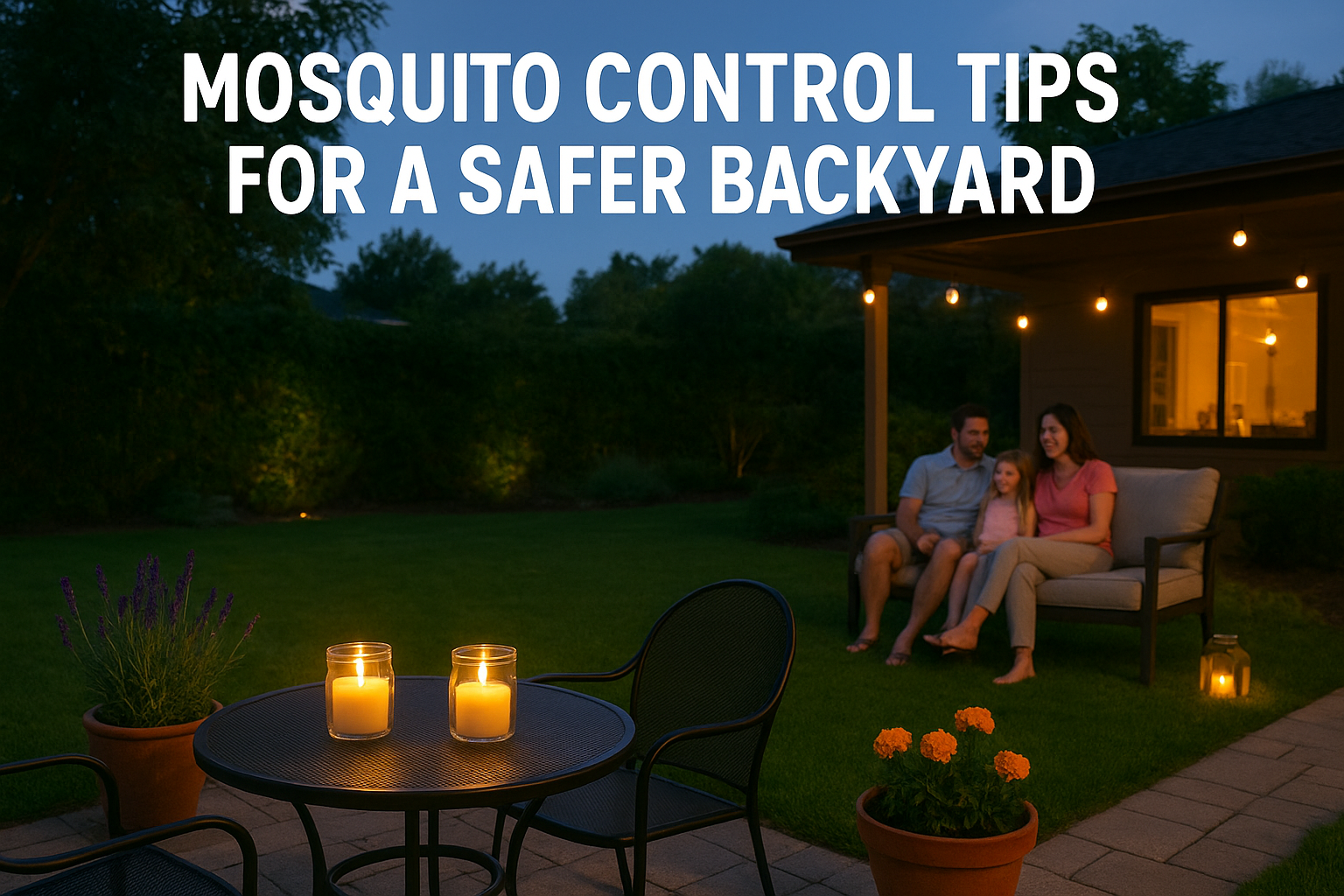The Role of Hygiene in Pest Prevention
- Pest_Control

Table of Contents
Introduction
The Role of hygiene in pest prevention cannot be overstated, as it directly influences the health and safety of any environment, whether at home, in offices, or across commercial facilities. Pests such as rodents, cockroaches, flies, and ants thrive in conditions where food, water, and shelter are readily available. Poor hygiene provides exactly that, turning spaces into attractive breeding grounds. By maintaining strict cleanliness standards, property owners can significantly reduce the risk of infestations and safeguard not only their spaces but also the wellbeing of people who live or work in them.
Why Hygiene Matters in Pest Prevention
The Role of hygiene extends far beyond just appearances. Cleanliness eliminates many of the attractants pests depend on. Crumbs left on counters, unsealed garbage bins, stagnant water, or cluttered storage areas create the perfect environment for pests to breed and multiply. Once an infestation begins, pests can quickly spread diseases, damage property, and even harm reputations, especially in sectors like hospitality, healthcare, and food services. Proper hygiene practices act as a first line of defense, reducing the need for heavy reliance on pest control treatments later.
Food Safety and Pest Prevention
One of the most critical areas where the Role of hygiene becomes evident is in food handling and storage. Kitchens and dining areas are natural magnets for pests if not properly maintained. Leftover food scraps, improperly sealed containers, and dirty equipment can attract ants, cockroaches, and flies within hours. Maintaining hygiene by cleaning surfaces, sealing all food items, and disposing of waste regularly ensures that pests have fewer opportunities to invade. In commercial kitchens, strict hygiene protocols not only prevent infestations but also help businesses comply with health and safety regulations.
Hygiene as a Cost-Saving Strategy
The Role of hygiene is not just about preventing pests; it also plays a significant part in saving money in the long run. Pest infestations often result in costly extermination treatments, repairs for structural damage, and even fines for regulatory non-compliance. By implementing consistent hygiene measures—such as deep cleaning, waste management, and organized storage—businesses and households can avoid these unnecessary expenses. Preventive hygiene is always more affordable than reactive pest control.
Impact on Health and Safety
The Role of hygiene directly ties to human health. Many pests carry harmful bacteria, viruses, and parasites that can lead to illnesses. Rodents, for example, spread diseases through droppings and urine, while cockroaches are known carriers of allergens that can trigger asthma and other respiratory issues. By maintaining clean environments, the chances of exposure to such health risks drop significantly. This is particularly important in schools, hospitals, and food service facilities, where vulnerable populations may be at greater risk.
Hygiene in Commercial and Industrial Settings
The Role of hygiene is amplified in commercial and industrial settings. Warehouses, factories, and office buildings often have large storage areas and high human traffic, both of which can attract pests if not properly managed. Simple steps such as proper waste segregation, regular cleaning schedules, and monitoring of entry points can drastically reduce the likelihood of infestations. For businesses, good hygiene practices also protect brand reputation and build trust among clients and customers.
Hygiene and Environmental Responsibility
Another dimension of the Role of hygiene in pest prevention is its contribution to sustainability. Over-reliance on chemical pest control methods can have negative impacts on the environment, affecting soil, water, and non-target species. By focusing on hygiene as the primary preventive measure, property owners reduce the need for chemical treatments. This eco-friendly approach aligns with global sustainability goals and demonstrates corporate social responsibility.
Partnering Hygiene with Professional Pest Control
The Role of hygiene is vital, but it works best when combined with professional pest control services. Even the cleanest environments can occasionally face pest challenges due to external factors such as neighboring infestations or seasonal changes. Partnering with a professional pest management company ensures a comprehensive approach—where hygiene practices prevent most issues, and expert solutions address any that do arise. This dual strategy guarantees long-term pest protection.
Practical Tips for Hygiene-Based Pest Prevention
- Clean all food preparation and dining areas immediately after use.
- Store dry goods in airtight containers to block access to pests.
- Take out garbage daily and use sealed bins to prevent rodent or insect attraction.
- Fix leaky taps or pipes, as stagnant water is a breeding ground for pests.
- Declutter storage areas to reduce hiding spots for rodents and insects.
- Schedule periodic deep cleaning for kitchens, bathrooms, and basements.
Conclusion
The Role of hygiene in pest prevention is clear: it serves as the foundation of a pest-free environment. From homes to commercial establishments, maintaining strict hygiene protocols not only deters pests but also protects health, saves money, and supports environmental sustainability. While professional pest control may still be necessary at times, hygiene remains the most powerful tool in minimizing risks. By taking proactive steps today, property owners can ensure safe, clean, and pest-free spaces for tomorrow.
Need a professional touch?
Don’t wait until pests take over—stay one step ahead with Blue Diamond’s pest control.



Frequently Asked Questions (FAQs)
Why is hygiene important in pest prevention?
Hygiene eliminates food, water, and shelter sources that pests rely on, making environments less attractive for infestations.
Can good hygiene alone keep pests away?
While good hygiene significantly reduces risks, some pests can still enter due to external factors. Combining hygiene with professional pest control ensures complete protection.
What areas should I focus on to maintain hygiene?
Kitchens, garbage storage, bathrooms, and storage areas are critical. Regular cleaning and proper waste management are key.
How does hygiene impact businesses in pest prevention?
Maintaining hygiene protects a business’s reputation, ensures compliance with regulations, and prevents costly pest-related damages or fines.
Does hygiene reduce the need for chemicals in pest control?
Yes. Clean environments minimize infestations, reducing dependence on chemical treatments and supporting eco-friendly pest management practices.
Share this
Book Your
Service In
30 Seconds
- 30 years of experinece
- Served 40,000+ clients across UAE
- Dubai Municipality Approved
- Eco - friendly products safe for All
- Cost Effective
- 24/7 Customer support
Check out our Recent Blogs
Bed Bugs: Detection, Treatment, and Prevention
Introduction Detection of bed bugs is often the most challenging part of dealing with these tiny pests. Bed bugs are...
Mosquito Control Tips for a Safer Backyard
Introduction Mosquito infestations are more than just a nuisance—they can pose genuine health risks to your family, pets, and guests....



